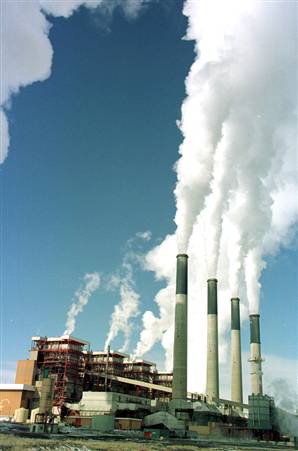
London would soon become world’s carbon trading capital, after getting the lion’s share of EU linked business and managing a large slice of international projects tied to reducing carbon emissions.
International treaties such as the Kyoto Protocol set quotas on the limit of greenhouse gases emissions by various countries. As a consequence of this, countries set quotas on the emissions of businesses. This meant that businesses that go beyond their quotas must buy carbon credits for their excess emissions, contrarily, businesses below their quotas can sell their remaining credits. The mechanism came to be known as carbon trading via which by allowing credits to be bought and sold in the market, a business like cement, steel, textiles for which reducing its emissions would be costly or prohibitive can exchange with another business to make the reduction for it. This helps minimize quota’s impact on the business, while still reaching the quota.
A report of the International Financial Services forecasts that London’s share of the market had expanded to the point where it dwarfed that of Norway, France and Germany. And as the financers such as banks and brokers become more heavily involved in it, London is well placed to dominate the carbon emissions trading business. IFSL estimates that London handled about 60% of the 1,649 million tones of carbon traded globally.
The European Union Emission Trading Scheme (or EU ETS) is the largest multi-national, greenhouse gas emissions trading scheme in the world created in conjunction with the Kyoto Protocol.
Apart from bilateral trades, most carbon emissions in the ETS system are traded through the ICE futures exchange in London. Last year the ICE Futures market accounted for 82% of all ETS transactions, the biggest of its kind in the world. Norway’s Nord Pool accounted for a further 11%, Powernext (France) 6 % and European Energy Exchange in Germany 1 %.
Consultancy Point Carbon forecasts that the amount of carbon traded will rise by 50% in current year to 2.4 billion tones. Between 2005-07 it is estimated British generators profited to the tune of £2bn and new estimates suggest they would continue to grow rapidly.
On the other hand, environmentalists argue that carbon trading and making income from climate change is unlikely to reduce global warming but supporters uphold the formation of a world market will eliminate obstacles in the way of reducing pollution.
Although the largest carbon trading system, the ETS, has been caught up in controversy for an oversupply of permits, yet a second phase is already in progress. An estimated 5,000 businesses and public sector organizations including supermarkets, hotel groups and banks, are stated to be covered by the permits regime and for the first time an auction process will be launched.
Via: Telegraph




